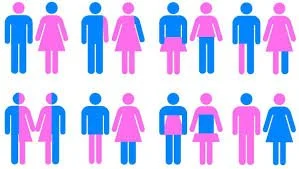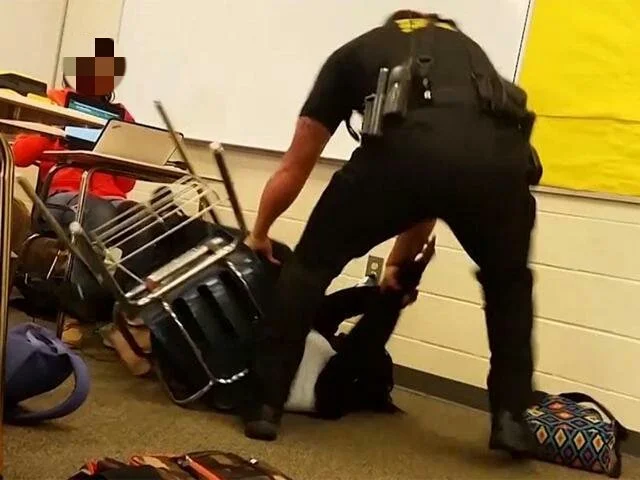The Power of Naming
THE POWER OF NAMING
What many do not understand about the power of weight a single word can have is that it all starts with something small. Anatomically, as fetuses, we are all female-sexed, some of us develop a penis (which is an enlarged clitoris) and testes, while others develop both female and male-sexed organs. When born doctors tell parents "it's a Girl." But what isn't shared? She is destined to live a life in fear of herself or becoming a victim or survivor of violence, to be paid less, to be harassed on the streets and in the workplace, to never be heard, to have old, white men who don’t know anything about them make legal choices about what happens to their body – they don’t own their body. If you are a girl of color, your obstacles are that much worse. Your life doesn’t matter.
Girl* — you hide your action figures in your bed under the covers, you practice impersonating Danny Zuko from Grease because he is the epitome of cool, you try on your brothers ties when no one is home, you fantasize about when you will meet your very own Sandy. You’re gay. No girls invite you to parties or sleepovers. They say they’re afraid that you’re going to rape them. They laugh at your haircut and clothes. You’re trans. You try not to cry because boys don’t cry.
They make fun of you for only wearing sports bras and not knowing your bra size. When really, you spend your nights wondering what will happen if you cut your breasts off yourself. Would the doctor be able to build you a boy’s chest? You’d limited your food intake in middle school when you learned that cafeterias were an open firing range for teens to prey on the “weak” so in high school you didn’t eat. You didn’t want to grow curves or shape or breasts. You always have to play it tough even when you want to cry because that’s what men do: they fight, they yell, and they don’t communicate emotions. Your first girlfriend’s mother tried to get you admitted into a psych ward, your second girlfriend wanted so desperately to be different and you fit that box. Her mother called you a nigger and she wanted to save your black life. You were in love. When you got your first binder in college you cried all night. When you got your first packer, you stood in the mirror and stared at your crotch for way too long. When you took your first shot of testosterone ("T"), you couldn’t stop thinking about how much more work you have to do to not have breasts and to not be called feminine pronouns.
Boy — if you’re white/white-passing and heterosexual you are destined to live a life exerting your power and privilege over everyone else in your life to the point in which you are never really sure if you know who your real friends are or who you are. You’ve experience some “tough” stuff but poverty, health, education, violence are aspects that merely tint the perspective of your life because those aren’t obstacles that define your trajectory
Boy* — you grow up afraid of crying, your parents won’t let you sleep with a night light on because you’re supposed to be brave, you get called faggot at school because you like music and the arts and you’re too afraid to go home and tell your dad you’re being bullied, you wish you were bigger or taller or had more muscles not to hurt anyone, but to make sure no one would want to hurt you. You came just from her touch the first time and was so ashamed that you threatened her not to tell anyone or else you’d tell the school she was a slut. You’re gay so you either lied to your parents or joined a sports team to cover up the support group meetings. You’re trans. You buy used women’s clothes from the thrift store and keep them hidden under your bed and in a bag in your school locker. You leave home early so you can change your clothes at school. They don’t fit right, but it’s your first dress and you couldn’t ask your mom for help with the sizing. You’re so excited you wear it anyway. It’s the first day of school. Your hair has grown out past your shoulders, you learned makeup from YouTube and managed your own small collection. You look beautiful. You see the guy you had been hooking up with all summer. You walk up to him and his friends to say “hi”. His friends laugh and asked if he was a faggot. He looked at you with such rage and threw his Gatorade onto your new dress, the dress you bought for him, and shoved you into a locker and said I thought I told you we can never talk at school. You meet him under the bleachers where you suck his cock and he comes on your new dress.
You didn’t know he had his buddy recording it and they sent it to the whole school. You get home, your mother is crying. Your dad beats you so badly you can’t see out of one eye and they kick you out of the house.
Intersex — you are born with both genitalia, the doctor and your parents choose that they want a daughter and surgically remove your testes and reshape your vulva, clitoris, and vagina. You never had consent. You grow up to realize that you are a transgender man and have to have extensive surgery and medical interventions to repair your first surgery. Or the reverse, your parents decided they want a boy and now you’re a 55 year old man, hospitalized, going through menopause because you have female and male chromosomes and you choose to transition to female because it minimizes your health risk.
From the time in which we begin speaking we quickly understand that the ability to name something gives someone power over that thing we’re naming. It is no longer something that can control us or threaten us because it is now ours to own. Historically, the signifiers (the namers) in our society have been cisgender, heterosexual Anglo-American, religious, able-bodied older men. It is no secret that trans and LGB folks were once categories for psychological admission, arrest, taboo, and shame. Speaking further when we name children, that is the first right we have taken from them.
We, from their inception, take away their freedom of choice. We instill gender through their name, their clothes, the language and behaviors we use and model, the color of the room, and their toys. We instill a hope, a faith, and a destiny onto them that they cannot define or determine for themselves. You see, the youth of our time and the times before us have already been set up to fail because they are living up to these names and words that were codified before any of us.
So to refer to people by their chosen name is to return power back to them. It is a restorative action in agency and advocacy. I believe this belief that someone will “act” transgender (a gender identity that for many involve hormonal treatment, surgical intervention, isolation from friends and family, loss of employment, homelessness, violence, and death) is a firm example of the importance of voter education. Non Discrimination Ordinances (NDOs) do not make illegal actions, such as sexual violence, suddenly legal. The unfortunate truth is that if a person is going to or wants to hurt someone, they are going to do it regardless of what laws are in place. In terms of sexual violence, NDOs do not increase the “risk” which is a belief system still in place that blames victims for their crime and not perpetrators. That women are always doing, saying, or being something that warrants violence. Instead of perpetuating a culture that embraces sex crimes as an inevitable result of the feminine existence, why don’t we do the work in teaching masculine-identified folks that they don’t have and are not owed any power within our societal and communal narratives? It has been documented in numerous studies and analyses that the primary offenders of sexually violent acts are predominantly single, heterosexual, white cisgender males. Rape isn’t and has never been about convenience, but about power and control.
What’s more, LGBTQ+ individuals are victimized at a disproportionately higher rate than their heterosexual and/or cisgender counterparts. In fact, NDOs protecting gender identity are in place in 200 cities across the United States and have not led to an increase in sexual violence. When looked at statistically, over the 35 years in which NDOs have protected gender identity globally, there as only been one case of a person abusing an NDO to commit sexual assault. One case in over 35 years in the context of over 84,000 rapes reported in 2014 none of them happened to have exploited gender identity
























